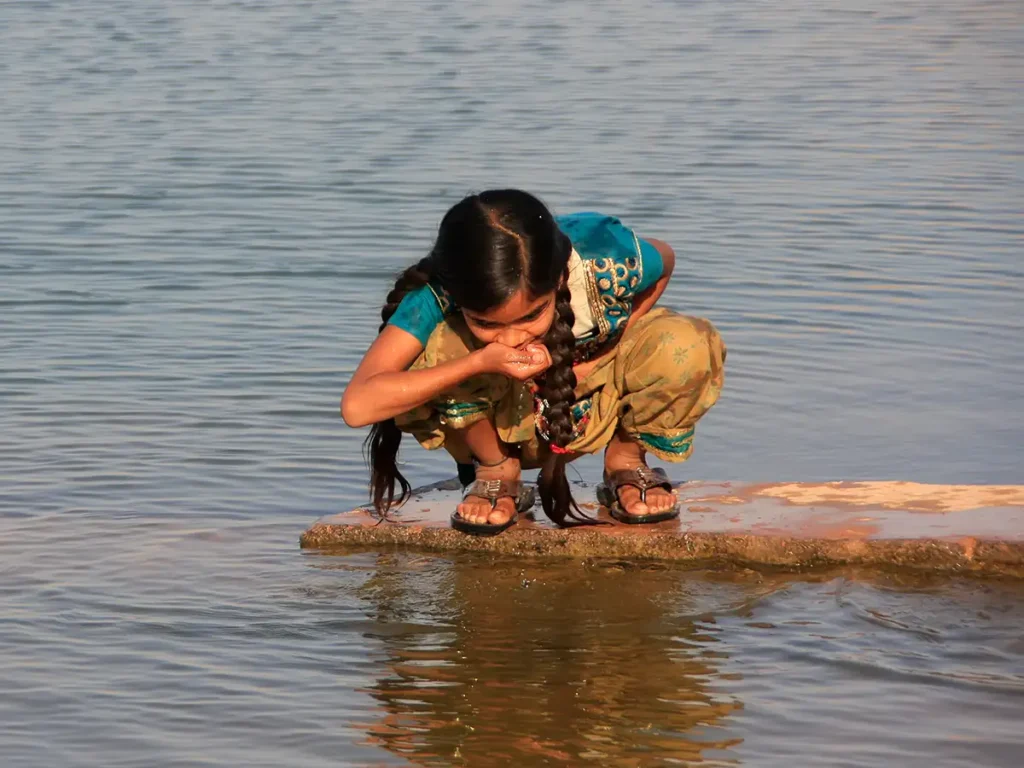Deadly Heatwave in India Exposes the Urgency of Global Warming Crisis

India is in the grips of an unforgiving heatwave that has tragically resulted in the loss of nearly 100 lives across two of its most populous states. This grim reality, primarily impacting the elderly and individuals with existing health conditions, highlights the profound consequences of extreme heat amplified by the ongoing global warming crisis. As temperatures soar and water scarcity worsens, immediate action is imperative to combat the far-reaching effects of climate change and safeguard vulnerable communities.
The Toll of the Heatwave
The northern state of Uttar Pradesh and eastern Bihar have borne the brunt of scorching temperatures. In Uttar Pradesh, specifically in the Ballia district, 54 deaths have been reported, with the majority being elderly individuals with pre-existing health ailments. Authorities have issued warnings for those above 60 and individuals with medical conditions to remain indoors during daytime hours. Moreover, hundreds of patients have been admitted to hospitals, suffering from heat-related illnesses such as high fever, vomiting, diarrhea, respiratory difficulties, and heart issues.
Escalating Crisis
Given the severity of the situation, medical personnel leave has been canceled, and additional beds have been arranged in emergency wards to accommodate the surge in patients. Ballia, along with central and eastern regions of Uttar Pradesh, is grappling with suffocating heat, as temperatures exceed the normal range by five degrees Celsius. The India Meteorological Department (IMD) predicts that relief is unlikely within the next 24 hours. Bihar is equally affected, witnessing 42 fatalities in recent days, predominantly in the state capital of Patna, where over 200 patients suffering from diarrhea and vomiting are receiving treatment.
Climate Change and Heatwaves
The exacerbation of heatwaves in India, as well as other parts of the world, is inextricably linked to the phenomenon of climate change. While India has always experienced sweltering summers, the intensity of heat has significantly increased in the past decade. A study conducted by the World Weather Attribution, an academic group that analyzes extreme weather events, indicates that climate change has made severe heat waves, such as the one experienced in April across South Asia, at least 30 times more likely. This alarming finding emphasizes the urgent need to address the crisis of global warming and its subsequent repercussions.
Water Scarcity and the Climate Crisis
Heatwaves in India exacerbate an already dire situation characterized by severe water shortages. As temperatures surge, tens of millions of people, among the country’s 1.4 billion population, face the grim reality of lacking access to running water. These scarcity-induced challenges further strain communities, making it arduous to maintain hydration and basic sanitation, thereby heightening health risks. The combination of extreme heat and water scarcity creates a vicious cycle that amplifies the adverse impacts of the climate crisis.
Call for Immediate Action
The recent heatwave and the tragic loss of life underline the pressing need for immediate action to combat climate change. Governments, communities, and individuals must prioritize sustainability, renewable energy sources, and conservation efforts. Transitioning to clean energy, implementing resilient infrastructure, and fostering sustainable practices are essential steps toward mitigating the effects of global warming.
The devastating loss of life caused by the ongoing heatwave in India serves as a wake-up call, reinforcing the urgency of addressing the global warming crisis. As temperatures continue to rise, and extreme weather events become increasingly frequent, vulnerable communities remain at significant risk. It is imperative for nations worldwide to take concerted action, reducing greenhouse gas emissions, adapting to changing climatic conditions, and placing the well-being of all individuals at the forefront. Through collective efforts, we can strive to mitigate the devastating impacts of climate change and build a sustainable future for generations to come.
Sources
ABC.net







Have your say